
News
JCCP and CPSA release their public narrative for 2024
The Joint Council for Cosmetic Practitioners (JCCP) and the Cosmetic Practice Standards Authority (CPSA) have released their Public Narrative statement for 2024.
The JCCP’s Clinical Advisory Group will continue to work with the CPSA and key partners to develop new and revised standards to assist in the design of a new and responsive model for licensing, and to identify emerging procedures that may warrant inclusion in the Government’s proposed new licensing scheme in in England.
The JCCP will operate its PSA-approved Practitioner Register under the same terms and conditions as currently used and continue to campaign for the full implementation of the JCCP 10 Point Plan as part of the licensing scheme.
In addition, the JCCP will further develop its Education and Training Register for providers and qualifications in association with DHSC proposals.
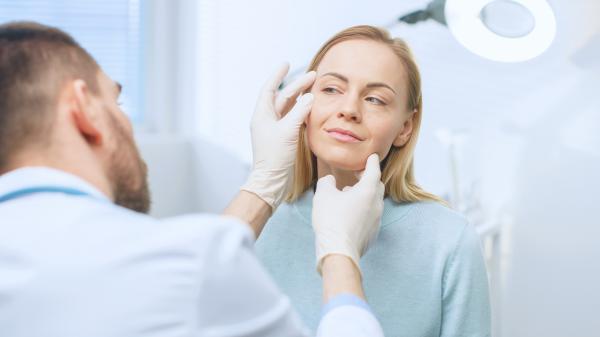
The organisiation also set out its intention to continue to build on those areas where it is seen as having a major strategic role in the sector, such as influencing members of the public, government, regulators and other stakeholders, complaints handling, standard setting, licensing and education and training. In terms of complaints, the council will continue to develop and promote its consumer complaints platform in the interests of public protection and patient safety.
Clearer definition regarding medical, medically related, and cosmetic procedural interventions will be called for and priority will be given to grow and develop the JCCP Corporate Membership Scheme for commercial partners in the aesthetics sector. Finally, the JCCP will continue to engage with research partners to contribute to the evidence base to inform safe and effective aesthetics practice and governance.
90% of men under 50 worried about cost-of-living stress ruining their looks
A new survey has revealed that nine out of 10 men are worried about the effect cost-of-living stress is having on their appearance. Perhaps surprisingly, the age most affected is men between 18 to 24 years old, with a staggering 40% worrying ‘a lot’ about it.
The research, conducted by independent survey company OnePoll on behalf of SafeAP, a downloadable app founded by two NHS doctors to help people find qualified cosmetic practitioners, surveyed 1,000 UK males aged 18-50, breaking the results down by age and region.
Nine out of 10 (90%) of the survey cohort admitted being worried about their appearance, with their concerns directly related to the stress of the cost-of-living crisis. 30% of men worried ‘a lot’ about this impact, with the majority (41%) at least ‘somewhat’ concerned – only 10% were ‘not at all’ worried. The top five were weight/fitness (40%); skin quality (25%); teeth appearance (23%); with eyebags (19%) and hair loss (19%) tied for fourth place – other areas included muscle tone and wrinkles. Even among the least worried age group; those aged 46-50; nearly one in five (19%) had substantial concerns. In the battle of the North, 43% of men on the North East were the most worried, compared to a more chilled out 23% in the North West where 14% were ‘not at all’ worried.
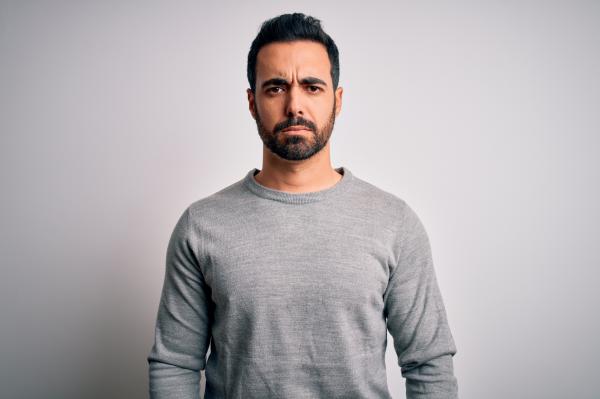
With such an overwhelming majority highlighting the impact of the stress, experts are worried that men will start seeking cheap aesthetic treatments from unsafe practitioners in an attempt to maintain their appearances. This concern is substantiated by news reports highlighting the dangers of men seeking cut-price procedures abroad to restore hair loss, prompting plastic surgery societies to issue international warning guidelines. A previous study by SafeAP showed that while more than half of women cite fear of complications as a factor preventing them from seeking procedures such as wrinkle-relaxing or filler injections and non-surgical liposuction, only just over a third of men (36%) claim having this concern, and only 27% feel put off by horror stories they might see in the media. This has prompted the team behind SafeAP to warn that men could be particularly vulnerable to predatory marketing tactics.
Maxillofacial surgeon Sieuming Ng who, along with Dr Subha Punj, pioneered SafeAP to ensure that non-surgical aesthetic procedures are delivered by qualified healthcare professionals in a safe environment, said: “It is evident that the physical impact of the cost-of-living crisis is prompting significant worries, and the survey responses paint a vivid picture of some of the surprising fears men are having. What’s particularly worrying is the potential for a rise in the uptake of unsafe non-surgical aesthetic treatments, prompted by cost-cutting measures. While cheap, quick fixes may be tempting, they come with significant risks. We encourage men to make informed choices, seeking qualified practitioners to safeguard both their appearance and wellbeing.”
‘No active plans’ to introduce legislation for the aesthetics industry in Northern Ireland says minister of health
Northern Ireland’s Health Minister Robin Swann said there are “no active plans” to introduce legislation around NI’s aesthetics industry.
It comes after Mark H Durkan, a member of the legislative assembly (MLA) for the Social Democratic and Labour Party (SDLP), compared parts of the sector to the ‘Wild West’. Durkan suggested a ‘Zoom boom’ – where people saw themselves on screen more regularly as online meetings increased during Covid – had led to increased demand.
He raised the issue in the Assembly after the Belfast Telegraph reported that more patients are suffering “life-altering” injuries from botched and unregulated aesthetics processes, like botulinum toxin and dermal fillers.
The SDLP MLA called on Mr Swann to introduce a licensing scheme and standardised qualifications for practitioners carrying out non-surgical cosmetic procedures (NSCPs). But Mr Swann said his department is “currently operating within a constrained budget”, adding: “In that context, work on the review of the regulation is currently paused to allow for other priority projects to progress. As such, there are no active plans to bring forward legislation in this area.”

In 2022, in the absence of an Executive, Mr Durkan commissioned a comparative research paper from the Assembly Research and Information Service (RaISe) into NSCPs in Northern Ireland and Great Britain.
Durkan said, “It’s not my intention to impact the many practitioners and businesses out there who pride themselves on their high standards but rather this is about the system they’re working in. Registered healthcare professionals performing NSCPs are required to meet the competency standards set by regulatory bodies such as the General Medical Council, the major problem here is that there is no such requirement for non-medical practitioners. This creates a Wild West scenario where essentially anyone can practise cosmetic procedures without a proper screening process for customers.”
Mr Durkan urged Mr Swann to issue a public consultation on a mandatory licensing scheme for NSCPs.
Quarter of a million people need CBT for anxiety, depression, OCD and Body Dyspmorphia
The NHS has revealed that 227,816 courses of Cognitive Behavioural Therapy (CBT) were given to people in England in 2022/23, accounting for 41.3% of all courses of therapy given in the year.
This figure is up 12% in just three years, when 202,223 people were given CBT courses in 2019/20, just before the Covid-19 pandemic. The UKAT London Clinic’s analysis of today’s NHS data shows that 60% (136,418) of those accessing all CBT courses do so due to a diagnosis of anxiety. This figure is up significantly (25%) since before the pandemic, when 109,339 people were diagnosed with anxiety back in 2019/20. Depression is the second most popular diagnosis where a course of CBT therapy is prescribed – accounting for 33% (77,167) of CBT courses given to people in this country last year. Back in 2019/20, CBT courses were given to people with depression 67,595 times, meaning a four year rise of 15%.
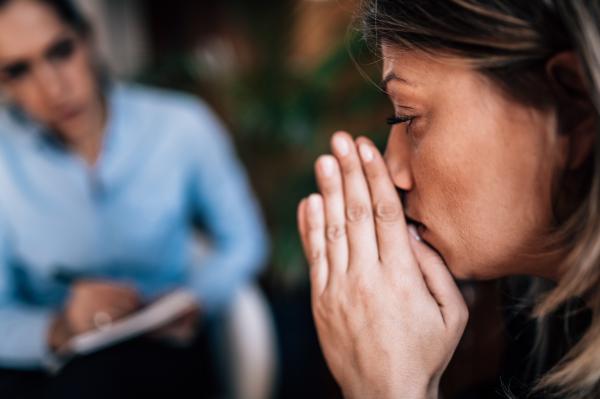
The UK Addiction Treatment Group’s London Clinic’s analysis of this NHS data has shown a concerning rise in CBT courses issued to people suffering with body dysmorphia. Back in 2020/21, CBT therapy was given to just 17 people diagnosed with body dysmorphia. New figures show that this has risen by a staggering 1,847%- up to 331 courses in 2022/23.
Lee Fernandes, lead therapist at the UKAT London Clinic, a mental health treatment facility commented: “Today’s figures prove that we’ve become an incredibly nervous nation. Rates of anxiety and other anxiety-related disorders such as OCD, body dysmorphia and agoraphobia are rising at alarming rates since the global pandemic, which is likely a significant cause.
“It’s only now that we’re truly seeing the mental health fall-outs of the Covid-19 crisis, and unfortunately, we believe that these NHS figures only tell part of the story. We know that there will be even more people out there struggling with confusing symptoms and dark thoughts, and we’re here to say that help is available. It’s time to prioritise your mental health and get the support that you need, no matter what your condition.”
Sixth Alma Academy held in Barcelona
Alma Lasers hosted the sixth Alma Academy in Barcelona in March, with nearly 400 physicians from 37 countries around the world in attendance.
The global summit brought together 16 world-class experts from across the industry to discuss the latest news, insights, and share real case practices.
Among the speakers were Prof Ofir Artzi and Prof Moshe Lapidot (Israel), Dr Munir Somji (UK), Dr Sachin Dhawan (India), and Dr Tiago Baptista Fernandes (Portugal). Topics ranged from skin rejuvenation to addressing challenging skin conditions, scars, and body contouring.
The event also included live demonstration sessions with Alma’s award-winning products such as the flagship Harmony XL Pro, , Alma Hybrid and Alma PrimeX.

The UK does not follow sun safety guidance new survey data finds
Face the Future, launched its 366 Days of SPF campaign with a YouGov survey, which highlighted that the UK population is not adhering to SPF guidelines, putting their skin health at risk.
A large proportion of people said they found SPF expensive (64%) and only 22% of the 2,000 participants said they applied SPF daily. The fear of getting sunburn was greater than that of skin cancer and almost half of the population were not worried about getting skin cancer, nor were they familiar with the symptoms.
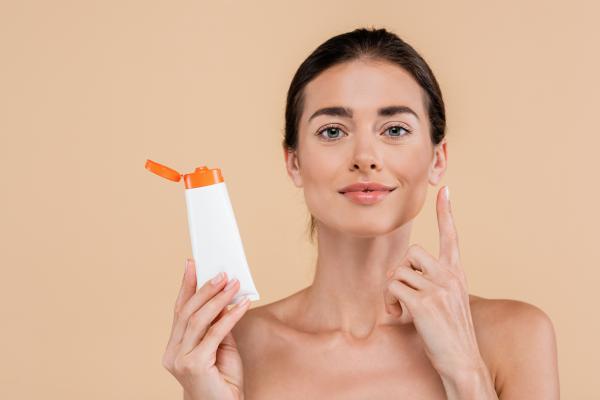
Nearly a third (31%) of the population said they actively seek a tan to look more attractive (53%) and confident (56%). Despite this, only 22% were concerned about the risks. Almost half of the UK population said they didn’t follow medical advice on wearing SPF daily. 45% said they disagree/strongly disagree with the medical advice to wear SPF every day, indoors and during winter, with over half only applying when it is sunny outside. Around one in seven said they never apply SPF.
The 366 Days of SPF campaign is backed by Amy Callaghan MP, whose VAT Burn campaign calls on the UK government to remove VAT from sunscreen products that have a health benefit.
She said, “Too many people still don’t protect their skin from the sun. It’s high time the UK government took note of these stats and enacted meaningful action to reduce deaths from melanoma and other skin cancers.”
Young mum dies days after Turkish BBL op
A 26-year-old British mum-of-three tragically died after getting a Brazilian bum-lift operation in Turkey. Demi Agoglia, 26, from Salford, Greater Manchester, is thought to have suffered cardiac arrests after returning to the clinic in Istanbul for a check-up following the surgery, The Sun reported in January.
The British Association of Aesthetic Plastic Surgeons have previously raised concerns about cosmetic surgery tourism and the risks of BBL procedures and patient safety guidelines drawn up by BAAPS in November may become the international standard in guidelines for cosmetic tourism.
Searches for ‘Glass skin products’ are skyrocketing by 202%
People are turning to research to achieve the perfect dewy skin with searches for ‘glass skin products’ skyrocketing by 202% in the past five years. The hashtag #glassskin is also trending on social media and has accumulated 3.9 billion views on TikTok alone worldwide.
Glass skin, which is a trend known for its clear, dewy and reflective appearance, is a Korean beauty term which has now caught on globally. Social media users are searching for to achieve the look, with #koreanskincare gaining 6.8 billion views on TikTok. Google searches also show searches for ‘Korean skincare’ have exploded to an all-time high over the past five years by 258%.

A new finding from beauty and wellness marketplace Fresha has also revealled that online searches for ‘glowy skin’ have exploded by 178% globally. At the same time, TikTok has seen 9,000 posts with the hashtag #cleangirl and 61 million views from users in the UK. The ‘clean girl’ aesthetic going viral is known for its emphasis on natural beauty look.
Ihya House of Aesthetics opens in Edgbaston
Ihya House of Aesthetics has opened its doors in Edgbaston, Birmingham. The name Ihya is rooted in Arabic and translated as ‘revival.
The exclusive launch event took place on January 25, 2024, with welcome drinks, a ribbon-cutting ceremony, guided tours, live demonstrations, exclusive evening offers and guest speakers covering topics such as optimal skin health and revolutionary body treatments. Guests could also get a VISIA Skin Analysis and take part in the raffle
The treatment menu includes the multi-modality platform HydraFacial Syndeo; non-surgical face-lifts using minimally invasive, needle-free technology, such as radiofrequency and HIFES; non-invasive body sculpting; cellulite reduction; hair restoration; skin rejuvenating treatments and peels; laser hair removal; skin boosters and intimate rejuvenation treatments. The doctor-led clinic also offers psychology services.
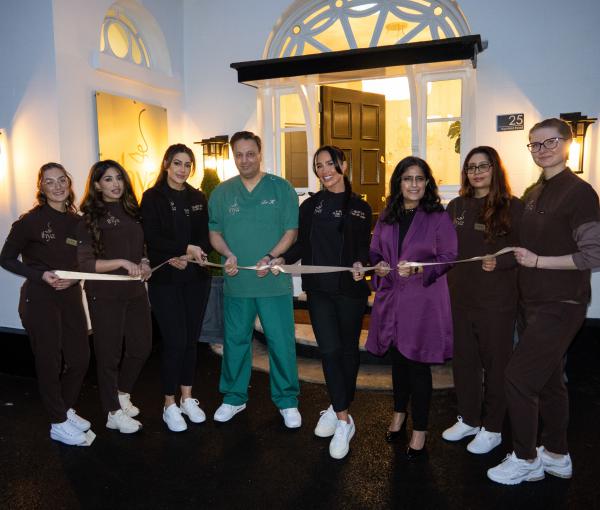
Surgeon highlights concerns over viral Lemon Bottle trend
Mr Naveen Cavale, a distinguished plastic and reconstructive surgeon at REAL clinic, has expressed his concern regarding the rapid rise in popularity of Lemon Bottle.
The treatment has garnered widespread attention on platforms like TikTok, amassing millions of views under the hashtag #Lemonbottle. Data from Google suggests that interest in Lemon Bottle is surpassing interest in traditional procedures such as liposuction and other fat-dissolving methods. The procedure involves numbing areas of concern, typically the chin, stomach and thighs, then injecting the solution directly into the fat cells.
Despite being hailed as the fastest fat dissolver, Mr Cavale cautions that there is a lack of substantial clinical evidence to support such claims.
“It’s being touted as the fastest fat dissolver there is, but it doesn’t appear to have clinical evidence behind it to lay claim to this,” states Mr Cavale. “My advice would be don’t rush in for it. It still needs assessing and regulating before it would appear on my personal roster of treatments. It might turn out to be great, it might also be a disaster, so I would personally say it’s not worth rolling the dice.”
Mr Cavale concludes by cautioning individuals about the transient nature of TikTok trends, citing previous viral phenomena like buccal fat removal and the Barbie Botox trend. “Trends come and go, so I would personally advise caution to anyone thinking about Lemon Bottle injections,” he remarks.
.png)